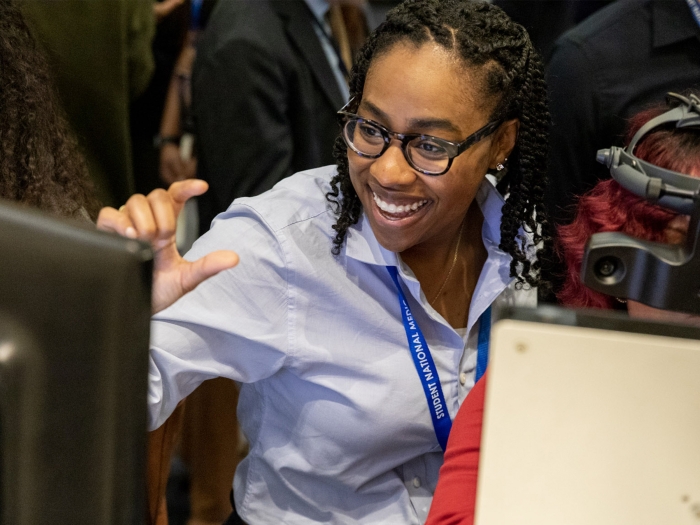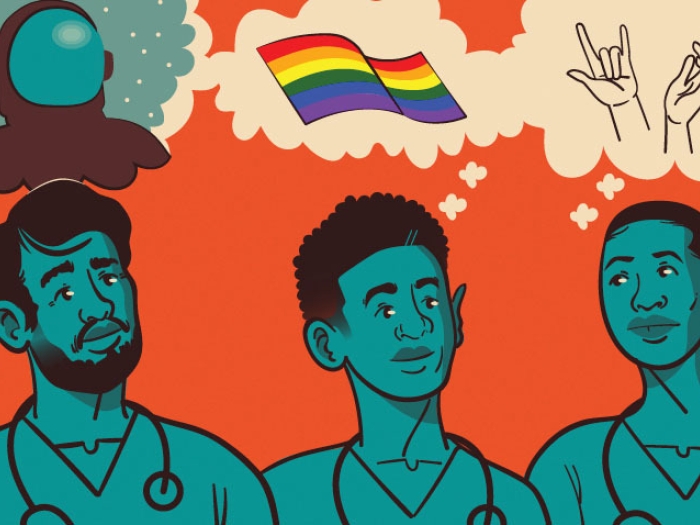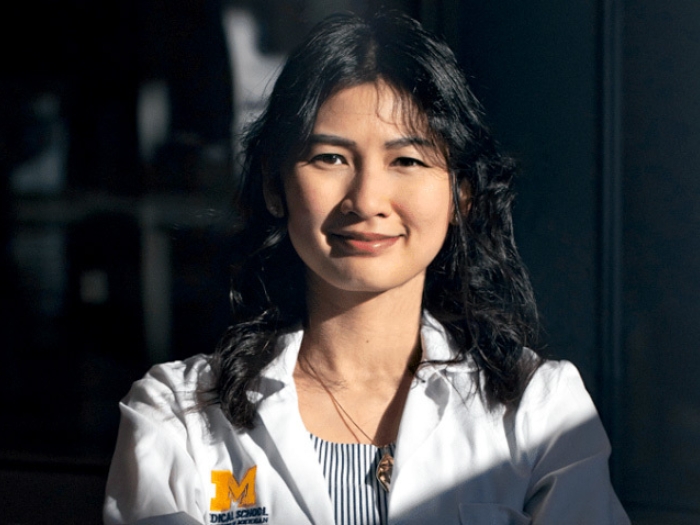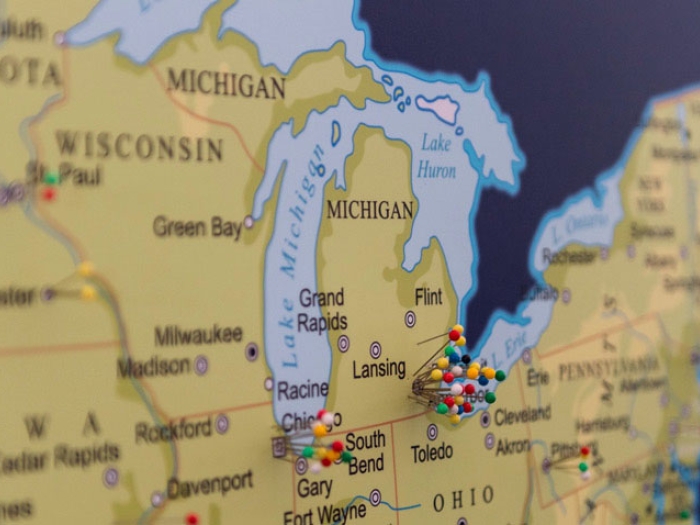A unique Michigan Medicine program exposes underrepresented minority students to careers in medicine.
1:14 PM
Authors |
As a student at Cass Technical High School in Detroit, Rico Ozuna-Harrison discovered how he could have a future in medicine.
Every month, students from Cass Tech visit the University of Michigan to be mentored by medical students.
LISTEN UP: Add the new Michigan Medicine News Break to your Alexa-enabled device, or subscribe to our daily updates on iTunes, Google Play and Stitcher.
"It helped me to stay focused and by doing so, inspired me," said Ozuna-Harrison, who is now a sophomore at U-M.
Established in 2012, the Doctors of Tomorrow program is focused on diversifying the future of health care by exposing underrepresented minority students to careers in medicine, as well as providing them with foundational skills to pursue a career in health sciences.
While program activities vary from day to day, each day is teeming with new educational opportunities. Over the course of the program, students learn CPR, automatic defibrillation, laparoscopic surgical skills, the basic elements of surgery and other clinical skills.
Jonathan Finks, a surgeon and associate professor at Michigan Medicine, decided to tackle the question of how health care can be more diverse. He founded the Doctors of Tomorrow program at U-M. The program takes place at Cass Tech, where more than 80% of students identify as African American.
Velma Snow, assistant principal at Cass Tech High School in Detroit says that the Doctors of Tomorrow program lets children see that "they're in charge of their future."
By pairing up with 100 medical students from U-M, 35 high school students are provided with an opportunity to attain skills for a future in health care.
"This program was born out of an observation that there weren't a lot of people of color in the medical school amongst medical students or practicing physicians at the University of Michigan," Finks said. "After doing some research, we realized that this was a national problem."
Due to U-M's geographic proximity to Detroit, Finks reached out to Cass Technical High School, a well-known magnet school in which eighth grade students must pass an entrance exam for admission. Once accepted into the school, students decide a direction of study in a specialized area and follow a specific course plan. They also must maintain a 2.5 grade point average to attend the school.
"These kids are willing to go the extra mile," Finks said. "These are the ones who we felt if we were able to shepherd them along and provide them mentorship, guidance and hopefully some financial support, then we could get them to medical school to sort of start a pipeline that begins in high school and follows them all the way to college."
The hands-on activities help students who are interested in medicine stay engaged in the field, while also giving them real-life clinical context, Finks said.
MORE FROM MICHIGAN: Sign up for our weekly newsletter
A significant portion of the program involves work on a Capstone Project, which allows participants to collaborate with their peers and mentors, and investigate the effects socioeconomic status has on health and health-related matters.
At the end of each program, the student groups present their findings to an audience of family, friends and health care professionals. Past subjects have included youth violence, drug abuse, mental health awareness and the Flint water crisis.
"The Capstone Project helps them understand that even as a freshman in high school, they can be agents of change," Finks said.
"These students are remarkable," says Gurjit Sandhu, PhD, Assistant Professor of Surgery at the University of Michigan Medical School, of the Doctors of Tomorrow students at Cass Tech.
Gurjit Sandhu, assistant professor of surgery at Michigan Medicine, assists the students in designing posters for their presentations, called Photo Voice. After hearing about the program, she was inspired to come to U-M and work within the Department of Surgery.
The Doctors of Tomorrow program is not just beneficial to the high school students participating; it is equally as important to the medical school as a whole and the research that comes as a result of the program.
Residents at U-M have varying interests in topics that include education and outcomes research, and through this program, they are able to expand their knowledge and better understand their own respective fields.
"We nurture residents to become the best doctors in the future by having them think not just about patients today, but also about patients in the future," Sandhu said. "Residents are really starting to take the lead in thinking about patient care as something that they're in charge of while still in residency."
Finks' goal is to inspire other medical schools to adopt similar programs, and he hopes to do this in years to come.
"We need to establish these pipeline programs so we can take kids from seventh grade to ninth grade to college to medical school," Finks said. "It's incredibly important."

Explore a variety of health care news & stories by visiting the Health Lab home page for more articles.

Department of Communication at Michigan Medicine
Want top health & research news weekly? Sign up for Health Lab’s newsletters today!





